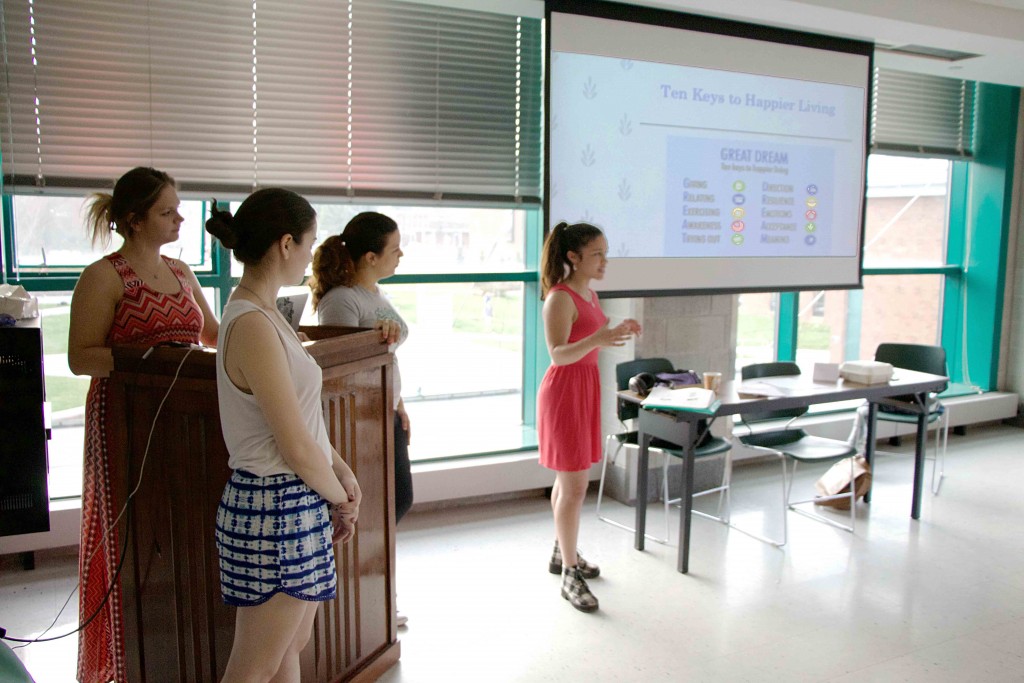
As the semester’s stressors increase, Binghamton University students are working to provide each other with strategies to cope with the blues.
Interns for the Mental Health Outreach Peer Educators (M-HOPE) gave a talk on Monday about the importance of working on maintaining happiness. Made up of M-HOPE interns Allison Dashow, a junior majoring in psychology and Allegra Anderson, Amanda Niedfeld and Olga Gonzalez, all of whom are seniors majoring in psychology, the group defined happiness as a combination of someone’s satisfaction and contentment with their life, as well as their level of engagement with the world. However, they also acknowledged that happiness exists on a spectrum, that can change from day to day.
Additionally, the presenters explained that happiness is not simply about feeling good and being energetic all of the time. Anderson noted that though there are clear indicators for depression, there are no such indicators for happiness.
“The big thing that we’ve seen with happiness is it’s more of an attitude,” Anderson said. “A lot of people will assign happiness to an event. The issue that that creates, is if you assign happiness to an event you put a lot of weight on it. So, if you get to that point and you’re not happy, you’ll be really disappointed.”
To cope with potential disappointment and maintain happiness, the presenters offered an acronym to the gathered students. Referred to as the “Ten Keys to Happier Living,” and abbreviated as GREAT DREAM, the letters stand for giving, relating, exercising, awareness, trying, direction, resilience, emotions, acceptance and meaning.
The presenters went around the room after defining each letter and asked attendees to provide examples of the 10 keys from their own lives. Responses ranged from giving back through community service to showing resilience by studying harder for a next test after receiving a poor grade.
“Trying,” one of the 10 keys, encourages people who feel that they are stuck in a rut to identify behaviors that they feel are impacting them negatively and actively work to change their routine around these behaviors. The presenters said that the change from new experiences can be good for mental health, as it prevents one from getting stuck in a bad routine.
The M-HOPE organizers work through the University Counseling Center and Anderson said that as the semester begins to wind down, there is a noted uptick in depression and stress around campus.
“We really want to get people to take a step back and remind them why happiness is so important in their lives,” Anderson said. “And the fact that it’s attainable and create-able for a college student who is involved in a million different things.”
Grant Borden, an undeclared sophomore, attended the event for a quick study break and to learn time-management tricks.
“It gets nicer out and I want to do all the things outside I missed doing in the winter as much as possible,” Borden said. “But I have so many things to do for class and I really can’t without feeling guilty.”
Chelsea Breed, a freshman majoring in integrative neuroscience, found the event’s information reassuring.
“It’s good to know that it’s normal for happiness to go up and down,” Breed said. “No one is happy 100 percent of the time, everyone has bad days and good days. It’s about bouncing back and knowing how to pull yourself out of being down.”


